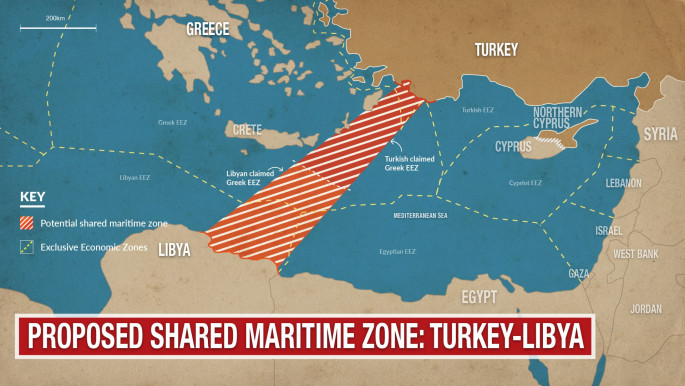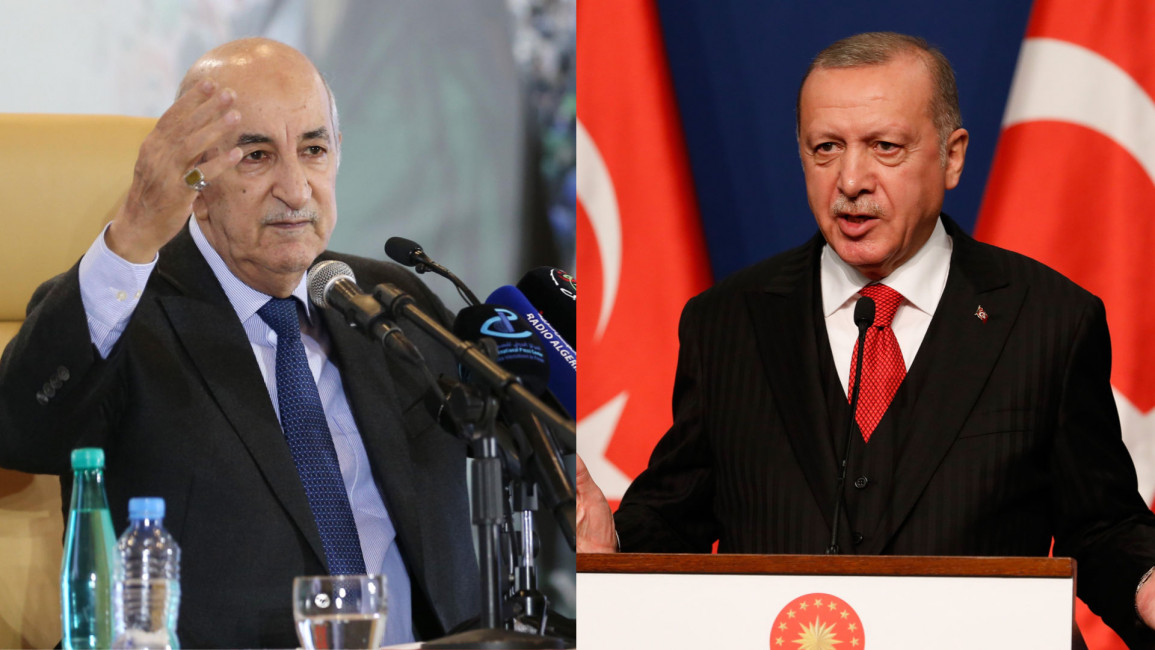Algeria reviews security as Turkey readies Libya intervention
The High Security Council met on Thursday and "discussed the situation in the region, particularly on the borders with Libya and Mali", the president's office said in a statement.
"It decided on a battery of measures to boost the protection of our borders and national territory, and to revitalise Algeria's role on the international stage, particularly concerning these two issues."
The statement did not elaborate on the measures to be taken but said the council would meet again "periodically and whenever necessary".
Turkish President Recep Tayyip Erdogan on Thursday opened the way for direct military intervention in Libya, announcing a parliamentary vote in early January on sending troops to support the UN-recognised Tripoli government against the forces of rogue General Khalifa Haftar.
The same day, Libya's Government of National Accord (GNA) said it may officially seek Turkish military support in the face of Haftar's months-long offensive to seize Tripoli.
Turkey and its regional ally Qatar have already supplied an array of weapons to the Tripoli government, including drones, but is now threatening a sharp escalation.
Libya's eastern neighbour Egypt supports Haftar's forces and also serves as a staging post for arms deliveries to the general from Qatar's Gulf rival the United Arab Emirates.
 |
|
| [Click to enlarge] |
The Turkish parliament on Saturday ratified a security and military cooperation deal with the GNA, which Turkish officials say would allow Ankara to send military and security personnel to Libya for training purposes.
Ankara has also signed a separate maritime jurisdiction agreement with the GNA - which has drawn international criticism especially from Greece, as part of its efforts to establish itself as a key player in the exploitation of hydrocarbons in the eastern Mediterranean.
Libya was plunged into chaos with the toppling and killing of longtime dictator Muammar Gaddafi in a 2011 NATO-backed uprising and has since become divided between two main camps: the GNA and a rival administration in the country's east, backed by Haftar.
Khalifa Haftar's self-styled Libyan National Army launched an offensive in April to take the capital from the internationally recognised GNA, making rapid gains before becoming stalled on the edge of the capital.
Read more: Turkey's military involvement in Libya: Do desperate times call for desperate measures?
In Mali and adjacent countries of the sprawling Sahel region, France has a 4,500-member force which has been fighting jihadists since 2013. Forty-one soldiers have died.
Last month, 13 French soldiers were killed in a helicopter crash in the north of Mali as they hunted jihadists - the biggest single-day loss for the French military in nearly four decades.
The Pentagon is looking into reducing or even withdrawing US troops from the region, including those supporting the French operation, the New York Times reported on Tuesday.
Follow us on Twitter and Instagram to stay connected



